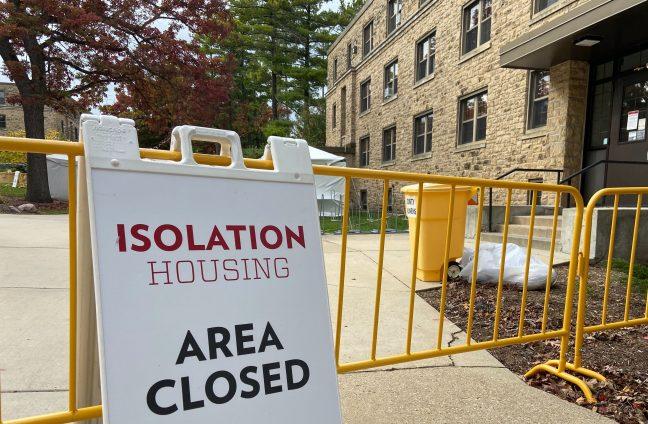As the 2020 election rages on with no real end in sight, Wisconsin is breaking many records, including early voter turnout. Unfortunately, it also broke another, less-encouraging record — a new daily record of COVID-19 cases.
According to AP news, Wisconsin health officials reported 5,771 new COVID-19 cases and 52 more deaths on Tuesday, along with an increasing positive test rate.
This has come with drastic consequences, where hospitals all over Wisconsin and the rest of the nation report a struggle to manage the COVID-19 surge, going so far as to set up dedicated field hospitals for COVID-19 patients.
This trend is largely unsurprising, as cases have seen an enormous uptick within these past two months alone. What is surprising, however, is how bad it is going to get.
With the entire country facing tremendous turmoil following electoral results, people from all sides of the political spectrum have come out in the form of large public gatherings to protest results and generally express their feelings during one of the most significant elections of all time.
This is understandable, as a fundamental aspect of democracy is the ability to express your views in a public way. But this does not bode well for rates of COVID-19, especially in Wisconsin, which ranks among the worst currently in terms of total number of COVID-19 cases. Not to mention, the millions of people voting in-person during Election Day could have an impact on the increasing cases of COVID-19, though this is impossible to know just yet.
Moreover, the Wisconsin Supreme Court voted against Gov. Tony Evers’ suggestion to reinstate a limit to public gatherings, choosing instead to defer to lower courts to determine whether they are even legal in the first place. At face value it is easy to understand both sides.
Imposing limits on people going outside and interacting with others are key to minimizing the length of the pandemic. But at what cost? One of the main reasons people are currently gathering is to express their first amendment right, and limiting these gatherings can be seen as unconstitutional.
Healthcare workers face burnout during second wave, parallels student mental health struggles
But Evers’ suggestion solely focuses on indoor gatherings, as his earlier order in October “limited the size of indoor public gatherings to 25% of a building or room’s occupancy or 10 people in places without an occupancy limit.” This order was marked by heated protests by several organizations such as the Tavern League of Wisconsin, which argued that “the capacity restrictions limit its fundraising gatherings.”
This may be true, but in the end something must be done to minimize the rates of COVID-19 that Wisconsin is currently struggling with. Since it becomes a bigger issue to severely limit public gatherings especially during election season, Wisconsin must focus inward towards indoor gatherings.
Along with having a mandate for masks and social distancing, Wisconsin, namely its Republican lawmakers, should comply with Evers and further institute limits to indoor gatherings.
Students should not bear responsibility to monitor others following Smart Restart failures
Some good news is that UW System President Tommy Thompson announced last Wednesday all UW campuses would offer new rapid-result COVID-19 tests to the public as early as this week.
“The tests will be free and anyone can get one, regardless of whether they’re affiliated with the University system, whether they have COVID-19 symptoms or whether they live in a community where testing is offered,” Thompson told the Associated Press.
Even as such, increased testing is not enough when there are no active policies and incentives for the public to comply with health guidelines.
COVID-19 will not magically disappear with more testing, especially since people can contract COVID-19 multiple times. The pandemic will not manage itself, and something must be done statewide to manage the numbers — especially with the entire country facing political, social and economic unrest.
Samiha Bhushan ([email protected]) is a sophomore majoring in economics.





















